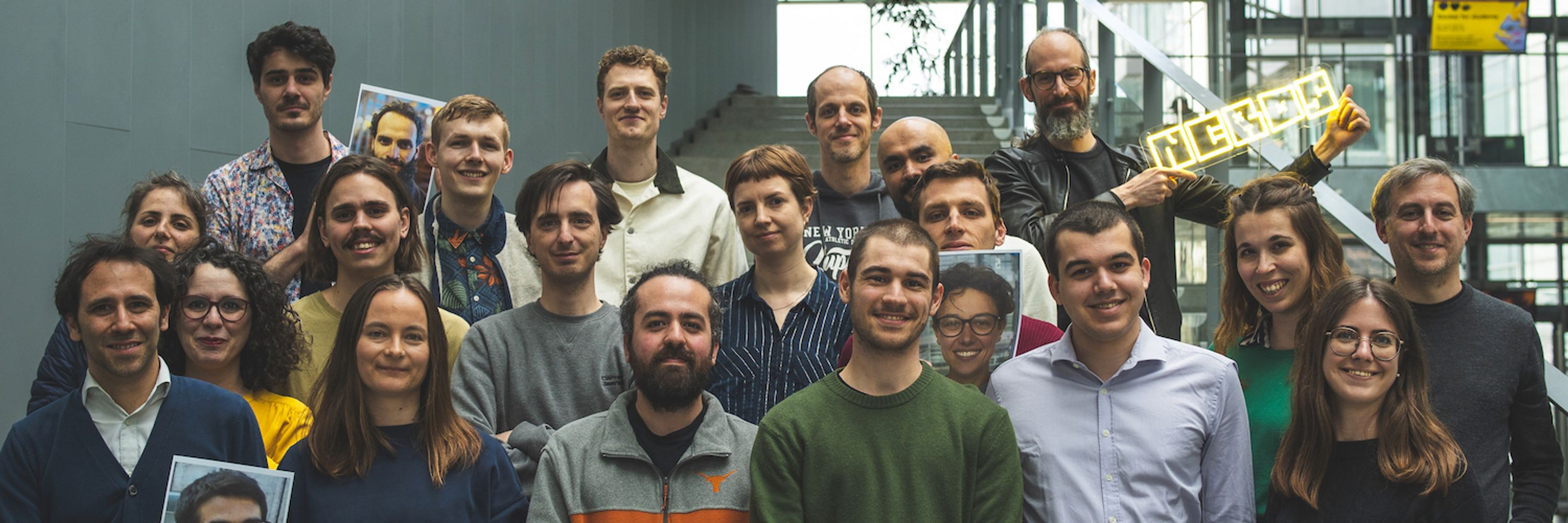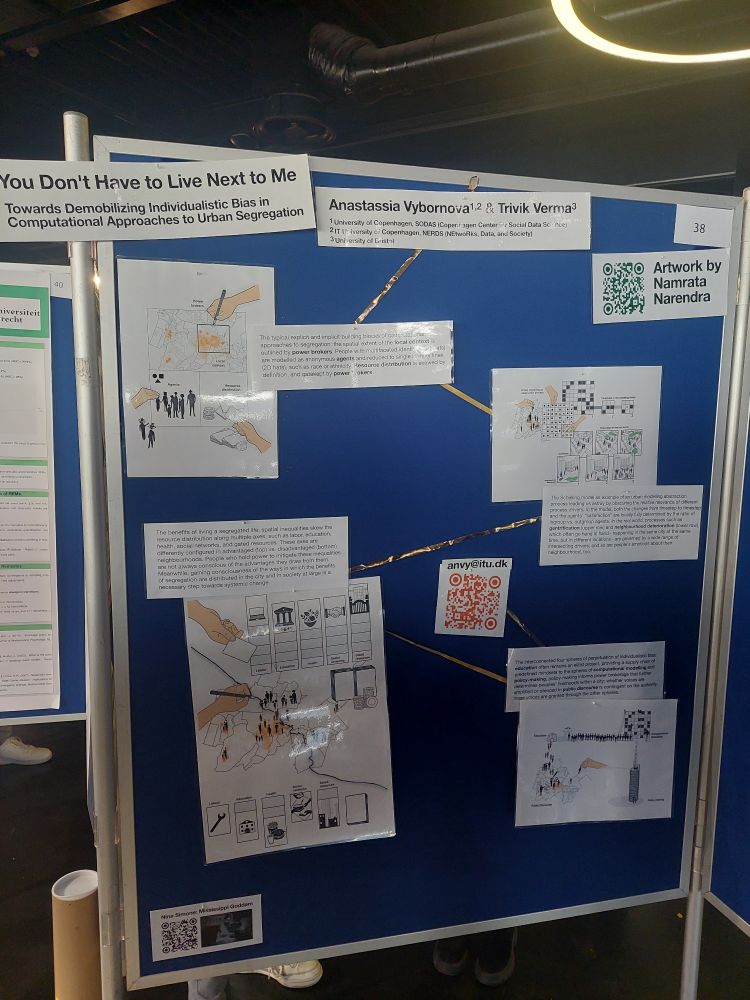
We are: https://nerds.itu.dk/people | https://bsky.app/starter-pack-short/4ej8RNM
Italian Conference on Computational Social Science
to join us in Turin on May 19-21
We welcome abstract submissions on #computerscience #netsci #complexsystems #sociology #economics #politics #cognitivesci #psychology and more
For more: cs2italy.org

Italian Conference on Computational Social Science
to join us in Turin on May 19-21
We welcome abstract submissions on #computerscience #netsci #complexsystems #sociology #economics #politics #cognitivesci #psychology and more
For more: cs2italy.org
Fun to see how this has evolved! Our nodes are: orozco, szell, vybornova. Several friends also visible 😍

Fun to see how this has evolved! Our nodes are: orozco, szell, vybornova. Several friends also visible 😍
🇩🇰🇫🇮🇳🇴🇸🇪🇮🇸
The brand new Nordic Society for CSS welcomes all researchers and practitioners based in the Nordics. The Society will promote student mobility, events, and education initiatives.
Join for free: nosocss.org/join.html.
🇩🇰🇫🇮🇳🇴🇸🇪🇮🇸
The brand new Nordic Society for CSS welcomes all researchers and practitioners based in the Nordics. The Society will promote student mobility, events, and education initiatives.
Join for free: nosocss.org/join.html.
nerds.itu.dk/2026/01/02/j...

nerds.itu.dk/2026/01/02/j...
nerds.itu.dk/2026/01/02/m...

nerds.itu.dk/2026/01/02/m...

https://itsfoss.com/news/denmark-road-traffic-authority-ditches-microsoft/
#Denmark

nerds.itu.dk/2025/12/11/m...

nerds.itu.dk/2025/12/11/m...

Italian Conference on Computational Social Science – CS2Italy
May 19-21, 2026 in Torino, Italy
Premier venue for Computational Social Science in Italy: #sociology #polisci #economics #netsci #complexsystems ++
Submit your abstract by Jan 15: cs2italy.org
plz reshare

Italian Conference on Computational Social Science – CS2Italy
May 19-21, 2026 in Torino, Italy
Premier venue for Computational Social Science in Italy: #sociology #polisci #economics #netsci #complexsystems ++
Submit your abstract by Jan 15: cs2italy.org
plz reshare
Same as last year, so I don't bother with a new post: https://community.datasci.social/blog/2024-11-15/two-years-old/
stable users - no issues - 99.9+% uptime - muchas gracias to our supporters!! 💖
Only new thing: Given bluesky's predictable moderation […]
Same as last year, so I don't bother with a new post: https://community.datasci.social/blog/2024-11-15/two-years-old/
stable users - no issues - 99.9+% uptime - muchas gracias to our supporters!! 💖
Only new thing: Given bluesky's predictable moderation […]
🧵
1. There is a tight inner circle, densely connected. Trump is in the near outer rim.
epstein-doc-explorer-1.onrender.com

🧵
1. There is a tight inner circle, densely connected. Trump is in the near outer rim.
epstein-doc-explorer-1.onrender.com
👉 Det vil ITU-forsker @vedransekara.bsky.social undersøge i et nyt projekt, der netop er blevet støttet med 3,1 mio. kr. fra Danmarks Frie Forskningsfond 👏
🔗 www.itu.dk/Om-ITU/Press...


For example, I just spotted this beautiful website by Catherine Yeh: github.com/catherinesye...


For example, I just spotted this beautiful website by Catherine Yeh: github.com/catherinesye...
nerds.itu.dk/2025/11/03/v...

nerds.itu.dk/2025/11/03/v...
nerds.itu.dk/2025/11/03/t...


nerds.itu.dk/2025/11/03/t...
🧠 Sekara, Dotu, Cebrian, Moro & García-Herranz
🔗 doi.org/10.1093/pnas...

🧠 Sekara, Dotu, Cebrian, Moro & García-Herranz
🔗 doi.org/10.1093/pnas...
Daniel Juhász Vigild will start by exploring how government use of AI impacts its trustworthiness, while Stephanie Brandl will examine whether LLMs can identify and classify fine-grained forms of populism.
Event🔗: sodas.ku.dk/events/sodas...

Daniel Juhász Vigild will start by exploring how government use of AI impacts its trustworthiness, while Stephanie Brandl will examine whether LLMs can identify and classify fine-grained forms of populism.
Event🔗: sodas.ku.dk/events/sodas...

